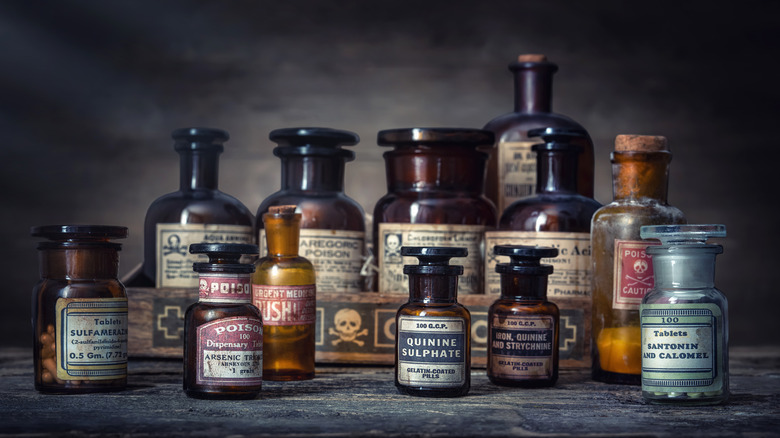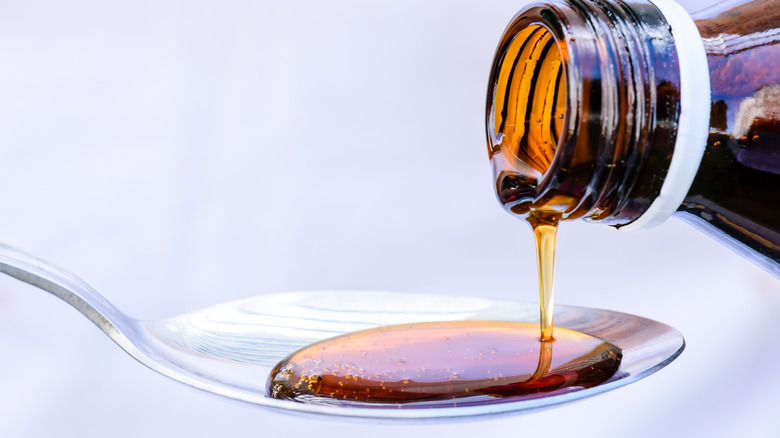Modern-Day Drugs That Were Once Used As Cough Medicine
Cocaine and heroin are among two of the many illicit drugs that may result in death by overdose. It's a surprise, then, that just a century ago, these drugs were used as ingredients in cough and cold medicines, especially in the 1800s when they were considered a legitimate cure for common symptoms and ailments.
In 1895, German company Bayer Pharmaceutical concluded that when boiled for hours, diacetylmorphine, also known as heroin, can be created from morphine and can be used as a cure for asthma, cough, and pneumonia. Per Best Medical Degrees, Bayer started selling its product in 1898 and it became an effective cure during a time when tuberculosis and pneumonia were rampant. Cocaine, on the other hand, became a favored over-the-counter medicine at the turn of the 20th century. It was also used for coughs and chest congestion, but many also took it for toothaches (via Mumbai Mirror). Another common cure for cough back then was chloroform — what we know now to be typically used for knocking people unconscious.
Despite helping alleviate the symptoms of cough, though, pharmaceuticals soon realized that using morphine, cocaine, and chloroform resulted in dire health consequences and sometimes even in death.
The fall of cocaine and heroin as cough remedies
Physicians whose patients took Bayer's heroin cure noticed that those patients began suffering from side effects. Initial doses that were taken no longer worked, requiring an increased dosage to treat symptoms. Patients also became dependent on the medicine and suffered hallucinations. By 1912, per Yale, more and more people became addicted to the drug, and patients, mostly young men, used it recreationally rather than just treating symptoms. According to The Recovery Village, heroin was banned in the United States in 1924 as patients became addicted to the substance.
Cocaine also suffered a similar fate due to its severe side effects, including hallucinations, depression, delusions, and addiction. Per PBS, approximately 200,000 people suffered from cocaine addiction by 1902. The drug was eventually prohibited in 1914, and though its use declined in the coming decades, it reemerged as the recreational drug of choice in the 1970s.
With the ban of these drugs, scientists, throughout the years, have found better cures for simple symptoms and ailments that won't result in patients getting addicted.

